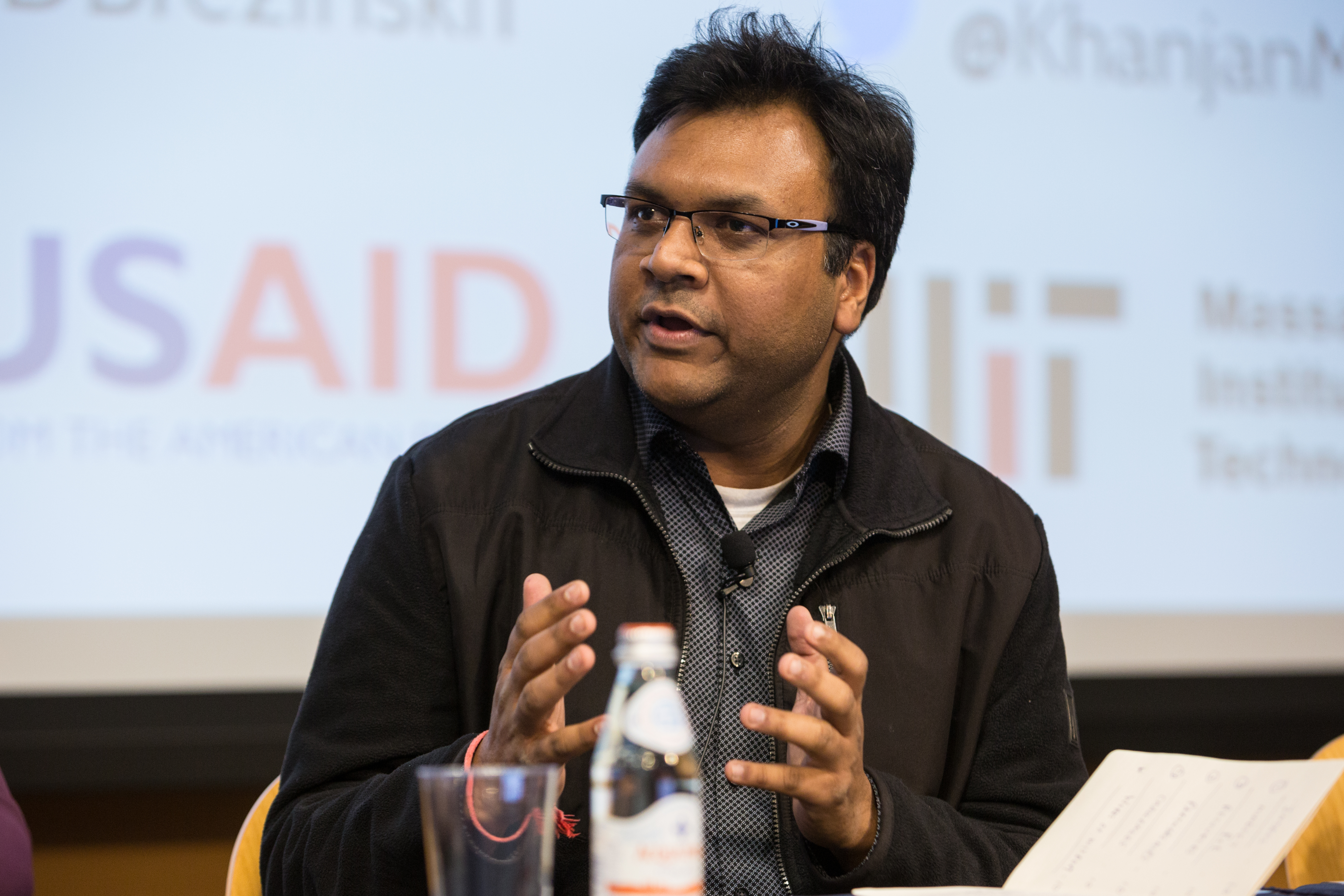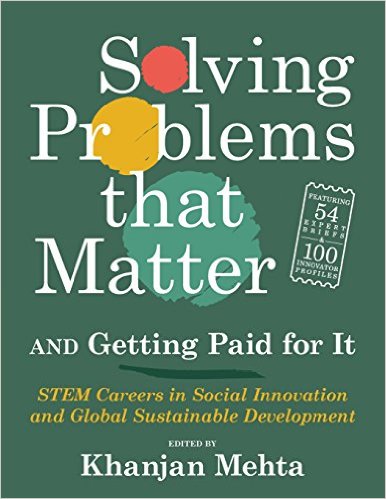Solving Problems that Matter (and Getting Paid for It)

"Solving Problems That Matter (and Getting Paid for It): STEM Careers in Social Innovation and Global Sustainable Development" is edited by Khanjan Mehta, the founder and director of the Humanitarian Engineering and Social Entrepreneurship Program and assistant professor of engineering design at Penn State.
 Just a few weeks ago, Khanjan Mehta joined us at TechCon 2016 to moderate a panel on lessons learned from successful and emerging social entrepreneurs around the globe. The panel was invigorating for many, particularly aspiring social entrepreneurs, and drew upon many of the take-aways from Khanjan's latest book Solving Problem That Matter (and Getting Paid For It), which explores career pathways in international development and social entrepreneurship.
Just a few weeks ago, Khanjan Mehta joined us at TechCon 2016 to moderate a panel on lessons learned from successful and emerging social entrepreneurs around the globe. The panel was invigorating for many, particularly aspiring social entrepreneurs, and drew upon many of the take-aways from Khanjan's latest book Solving Problem That Matter (and Getting Paid For It), which explores career pathways in international development and social entrepreneurship.
Khanjan and his co-editors open their book with the following:
"There is growing interest worldwide in academic programs and cocurricular activities focused on social innovation and global sustainable development. While such programs and student clubs take on many different names and forms, they share a common goal of actively working with partners to develop and implement practical, innovative, and sustainable solutions to challenges faced by communities in the United States and abroad."
A bit more about the book:
Solving Problems That Matter (and Getting Paid for It) stitches together a mosaic of perspectives, experiences, and actionable insights to illuminate the smorgasbord of career pathways in social innovation and global sustainable development.
54 expert briefs penned by leaders from USAID, Peace Corps, MIT, Engineers Without Borders, FHI 360, and other organizations offer practical insights into a myriad of topics such as:
- How do different kinds of organizations work?
- How do you find your first impact-focused job?
- What are the pros and cons of PhD, MBA, MPH and MPA degrees?
- How do salaries and benefits work when placed in a developing country?
100 STEM innovators from the World Bank, UNICEF, Gates Foundation, Google, and dozens of social ventures, government agencies, nonprofits, academia, and corporations share their career profiles with you.
Here, we highlight for you, two chapters penned by our very own IDIN staff members:
Five Reasons to Learn Multiple Languages
Sher Vogel, IDIN Summits Program Manager
"As STEM innovators who dare to dream of a more creative world, I challenge you not to fall into the trap of convenience. I encourage you to make the time investment necessary to step away from your 'normal' work and try learning at least one new language (if not multiple languages) even before you get to the community or office where you are planning to work. There are plenty of reasons you will thank yourself that you did."
Read Sher's five reasons to learn multiple languages on pg. 325.
Writing Well: the Master Key to Unlocking Opportunity in Social Impact Careers
Elizabeth Hoffecker, IDIN Researcher
"One of the most valuable skills in social impact careers across the public, private, and nonprofit sectors is the ability to communicate clearly, compellingly, and persuasively in writing. ... Yet writing can be challenging and intimidating even for people who regularly produce high-quality written work. With practice, however, anyone can become a better writer, and investing time and energy in sharpening your writing skills is one of the wisest steps you can take to position yourself for a high-impact career. So what does highly effective writing look like, and how can you learn to produce it?"
Read Elizabeth's tips for building writing skills on pg 327.
Download the book for free here, or watch a short video to hear from Khanjan himself!






